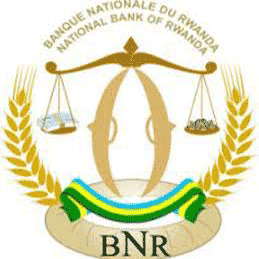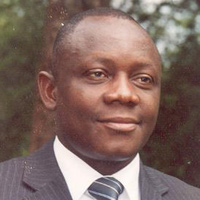 The National Bank of Rwanda (BNR) has been awarded the Alliance for Financial Inclusion (AFI) Policy Award for 2014 in recognition of its “innovative and impactful financial inclusion policies”.
The National Bank of Rwanda (BNR) has been awarded the Alliance for Financial Inclusion (AFI) Policy Award for 2014 in recognition of its “innovative and impactful financial inclusion policies”.
John Rwangombwa, the central bank governor tweeted after receiving the award that the accolade was in “recognition of Rwanda’s visionary leadership”, to which he attributed the success of the Umurenge Savings and Credit Cooperatives (Saccos) programme”.
The governor received the award on behalf of the central bank during the 2014 AFI Global Policy Forum in Port of Spain, in the island nation of Trinidad and Tobago. Umurenge Saccos have been a financial inclusion successstory, which have in just three years attracted over 1.6 million customers.
Saccos and other microfinance institutions in the country currently serve almost the same number of customers as those of commercial banks, according to AFI.
Today, more than 90 per cent of Rwandans live within a five kilometre radius of the nearest Umurenge Sacco.
Commenting on the award, Gilbert Habyarimana, head of Umurenge Saccos at the Rwanda Co-operative Agency, said microfinance institutions serve a segment of the population that had been ignored by commercial banks.
“Microfinance institutions and Saccos have enabled rural people have access to financial services, save and lend to each other. This has led to the creation of jobs in the country as more people venture into different businesses with financing from Saccos,” explained Habyarimana.
The AFI forum, which ended yesterday, was held under the theme, “Global partnerships, national goals, empowering people”.
AFI members had the opportunity to exchange knowledge and experiences, and work together to move the financial inclusion agenda forward, according to Rwangombwa.
The forum was a follow up to the one held in Kigali in July on “Financial inclusion for inclusive growth and sustainable Development international”, which was organised by the central bank in partnership with the World Bank, the African Development Bank (AfDB) and AFI.
 Rayon Sports volleyball club have closed the gap on leaders APR to within three points after winning their two rescheduled league second round matches.
Rayon Sports volleyball club have closed the gap on leaders APR to within three points after winning their two rescheduled league second round matches. Aline Umugwaneza scored 10 goals as Rwanda beat South Sudan 39-12 at this year’s U-20 handball Zone V Challenge Trophy and secured a place in the semifinals where they will meet hosts Uganda.
Aline Umugwaneza scored 10 goals as Rwanda beat South Sudan 39-12 at this year’s U-20 handball Zone V Challenge Trophy and secured a place in the semifinals where they will meet hosts Uganda. The 2011 Primus
The 2011 Primus A few days after promising her fans a strong musical comeback, local artiste Yvonne Mugemana, aka Queen Cha, has released a new video, Kizimyamoto, featuring Urban Boys’ Safi Madiba.
A few days after promising her fans a strong musical comeback, local artiste Yvonne Mugemana, aka Queen Cha, has released a new video, Kizimyamoto, featuring Urban Boys’ Safi Madiba. Five Rwandan films will be featured at the 9th annual edition of Festival cinemas d’Afrique Lausanne that kicks off August 21 to 24 in Switzerland. The five films include The Rwandan Night, Rwanda,
Five Rwandan films will be featured at the 9th annual edition of Festival cinemas d’Afrique Lausanne that kicks off August 21 to 24 in Switzerland. The five films include The Rwandan Night, Rwanda,  Music powerhouse Jeanne Ingabire Butera aka
Music powerhouse Jeanne Ingabire Butera aka  In the Himalayan wilderness Dharamsala is a lovely place. Spectacular views of the snow-laden mountains, striking culture, quaint old monasteries and packed with Buddhist nuns and monks together form the tourist attractions in Dharamshala.
In the Himalayan wilderness Dharamsala is a lovely place. Spectacular views of the snow-laden mountains, striking culture, quaint old monasteries and packed with Buddhist nuns and monks together form the tourist attractions in Dharamshala. Samsung Electronics West Africa and the Korean Education and Research Information Service (KERIS), in collaboration with the government of Ghana, this week launched the first Solar Powered Internet School (SPIS) in the country.
Samsung Electronics West Africa and the Korean Education and Research Information Service (KERIS), in collaboration with the government of Ghana, this week launched the first Solar Powered Internet School (SPIS) in the country. South Africa has launched Long Term Evolution (LTE) PayAsYouGo SIM cards for prepaid customers.
South Africa has launched Long Term Evolution (LTE) PayAsYouGo SIM cards for prepaid customers. To many, the fact that literacy in African countries often leaves a lot to be desired comes as no surprise. A lot of organisations, however, are looking for ways to turn this around. Take for example Worldreader, who is planning to distribute nearly 400 African ebooks for free!
To many, the fact that literacy in African countries often leaves a lot to be desired comes as no surprise. A lot of organisations, however, are looking for ways to turn this around. Take for example Worldreader, who is planning to distribute nearly 400 African ebooks for free! Samsung Electronics Ghana has partnered Vodafone Ghana to launch its new Samsung Galaxy Tab S 8.4 and 10.5 in Accra.The Galaxy Tab S 8.4 and 10.5 are Samsung's latest flagship devices, built to show off the very best of the company's hardware and software prowess.
Samsung Electronics Ghana has partnered Vodafone Ghana to launch its new Samsung Galaxy Tab S 8.4 and 10.5 in Accra.The Galaxy Tab S 8.4 and 10.5 are Samsung's latest flagship devices, built to show off the very best of the company's hardware and software prowess. Northern Corridor countries have agreed on a regional telecommunications framework to establish a "One-Network-Area" by 31st December 2014. When fully operational, charges on phones calls within the region could drop by 60 percent.
Northern Corridor countries have agreed on a regional telecommunications framework to establish a "One-Network-Area" by 31st December 2014. When fully operational, charges on phones calls within the region could drop by 60 percent. No one should be denied understanding of their human rights just because they can’t afford a mobile data plan. Now women in Zambia won’t be, as Facebook and Internet.org’s new app gives them free Internet connection for accessing women’s rights resources like MAMA (Mobile Alliance For Maternal Action), WRAPP (Women’s Rights App), and Facts For Life by UNICEF.
No one should be denied understanding of their human rights just because they can’t afford a mobile data plan. Now women in Zambia won’t be, as Facebook and Internet.org’s new app gives them free Internet connection for accessing women’s rights resources like MAMA (Mobile Alliance For Maternal Action), WRAPP (Women’s Rights App), and Facts For Life by UNICEF. The competition for the 3rd and 4th editions of the Education Research in Africa Award (ERAA) is now open.
The competition for the 3rd and 4th editions of the Education Research in Africa Award (ERAA) is now open. Johannesburg – The International Air Transport Association (IATA) African Aviation Day emphasized the need for intra-African air connectivity to spread economic and social prosperity across the continent. In particular, IATA noted that the liberalization of air rights for intra- Africa flights could yield significant benefits in both jobs and GDP growth.
Johannesburg – The International Air Transport Association (IATA) African Aviation Day emphasized the need for intra-African air connectivity to spread economic and social prosperity across the continent. In particular, IATA noted that the liberalization of air rights for intra- Africa flights could yield significant benefits in both jobs and GDP growth.




